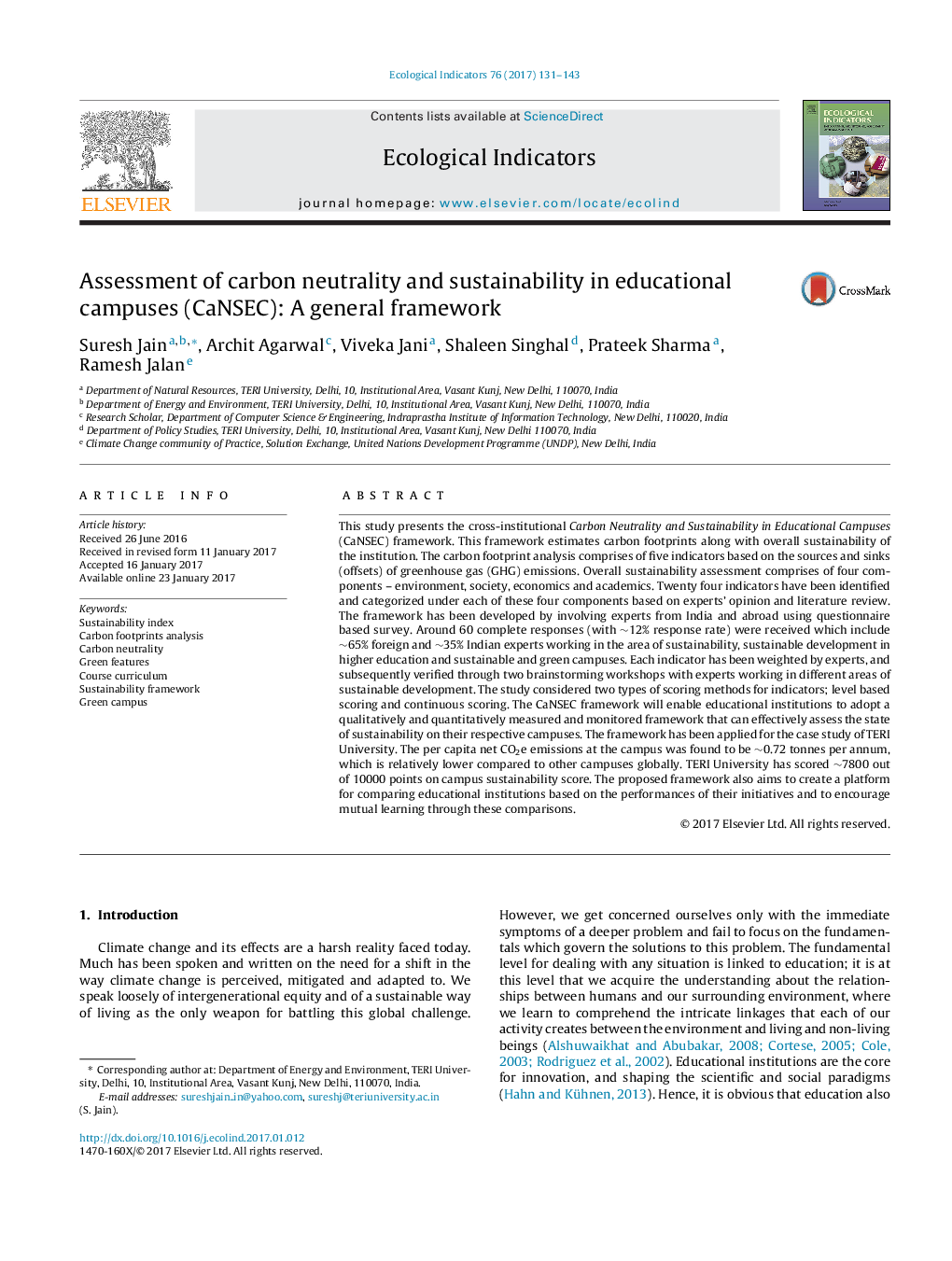| Article ID | Journal | Published Year | Pages | File Type |
|---|---|---|---|---|
| 5741678 | Ecological Indicators | 2017 | 13 Pages |
â¢Presents Carbon Neutrality and Sustainability in Educational Campuses (CaNSEC) Framework.â¢The CaNSEC Framework has been developed by involving experts from India and abroad.â¢Level Based Scoring and Continuous Scoring has been used for assigning weightage.â¢Tool have two components i.e. carbon footprints and sustainability aspects of the campus.â¢The per capita net CO2e emissions are â¼0.69 t per annum in case example.
This study presents the cross-institutional Carbon Neutrality and Sustainability in Educational Campuses (CaNSEC) framework. This framework estimates carbon footprints along with overall sustainability of the institution. The carbon footprint analysis comprises of five indicators based on the sources and sinks (offsets) of greenhouse gas (GHG) emissions. Overall sustainability assessment comprises of four components - environment, society, economics and academics. Twenty four indicators have been identified and categorized under each of these four components based on experts' opinion and literature review. The framework has been developed by involving experts from India and abroad using questionnaire based survey. Around 60 complete responses (with â¼12% response rate) were received which include â¼65% foreign and â¼35% Indian experts working in the area of sustainability, sustainable development in higher education and sustainable and green campuses. Each indicator has been weighted by experts, and subsequently verified through two brainstorming workshops with experts working in different areas of sustainable development. The study considered two types of scoring methods for indicators; level based scoring and continuous scoring. The CaNSEC framework will enable educational institutions to adopt a qualitatively and quantitatively measured and monitored framework that can effectively assess the state of sustainability on their respective campuses. The framework has been applied for the case study of TERI University. The per capita net CO2e emissions at the campus was found to be â¼0.72 tonnes per annum, which is relatively lower compared to other campuses globally. TERI University has scored â¼7800 out of 10000 points on campus sustainability score. The proposed framework also aims to create a platform for comparing educational institutions based on the performances of their initiatives and to encourage mutual learning through these comparisons.
Graphical abstractDownload high-res image (133KB)Download full-size image
